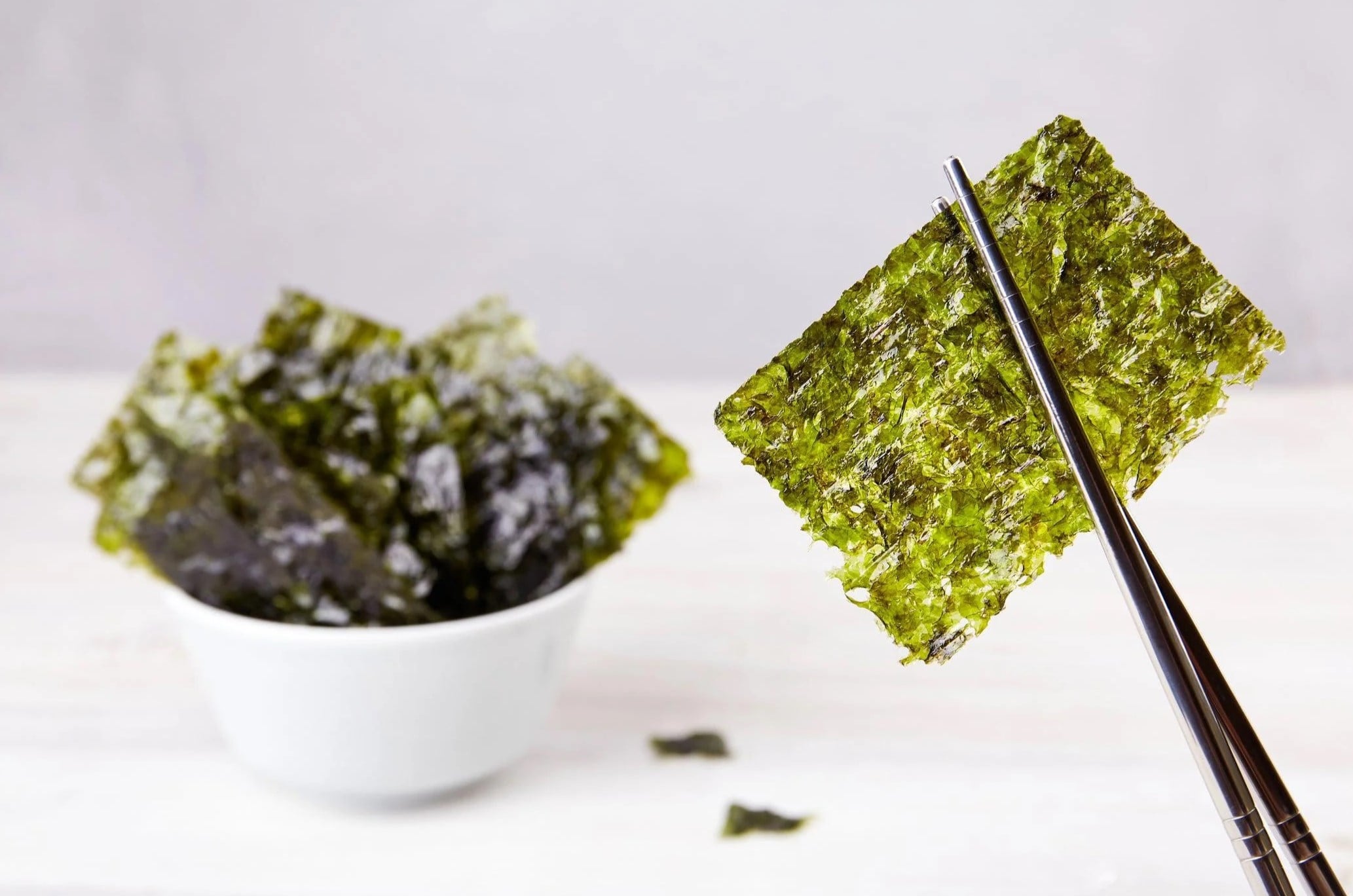
Nori, a type of edible seaweed, has become a staple in many kitchens worldwide. But what makes this humble sea plant so special? Nori is not just a sushi wrapper; it's a nutritional powerhouse packed with vitamins, minerals, and antioxidants. Did you know that nori contains more vitamin C than oranges? It's also rich in iodine, which supports thyroid health. Beyond its health benefits, nori plays a significant role in Japanese culture and cuisine. From sushi rolls to snacks, this versatile ingredient has a fascinating history and numerous uses. Ready to learn more? Let's dive into 15 intriguing facts about nori!
Key Takeaways:
- Nori, a type of seaweed, is rich in vitamins, minerals, and antioxidants. It's a complete protein source and supports heart and thyroid health. Plus, it's low in calories and high in fiber, making it great for maintaining a healthy weight.
- Nori farming has a low environmental impact. It requires minimal land use, doesn't need freshwater or fertilizers, and helps mitigate climate change by absorbing carbon dioxide. It also provides habitat for marine life and improves water quality.
What is Nori?
Nori, a type of edible seaweed, is a staple in Japanese cuisine. It's most commonly seen wrapped around sushi rolls. But there's more to nori than meets the eye.
-
Nori is made from red algae, specifically from the genus Porphyra. Despite its green appearance, it starts as a red seaweed.
-
The process of making nori involves shredding the seaweed, then pressing it into thin sheets and drying it. This method is similar to making paper.
-
Nori is rich in vitamins and minerals, including iodine, which is essential for thyroid function. It also contains vitamins A, B, C, and E.
-
This seaweed is a good source of protein. In fact, it contains all essential amino acids, making it a complete protein source.
-
Nori has been consumed in Japan for over 1,000 years. Historical records show that it was a common food in the Asuka period (538-710 AD).
Nutritional Benefits of Nori
Nori isn't just tasty; it's also packed with nutrients. Let's dive into some of the health benefits it offers.
-
Nori is low in calories but high in fiber. This makes it an excellent choice for those looking to maintain a healthy weight.
-
The seaweed contains antioxidants, which help protect cells from damage caused by free radicals. This can reduce the risk of chronic diseases.
-
Nori is a good source of omega-3 fatty acids, which are important for heart health. These fatty acids can help lower cholesterol levels and reduce inflammation.
-
The high iodine content in nori supports healthy thyroid function. This gland regulates metabolism, energy levels, and overall hormonal balance.
-
Nori also contains calcium and magnesium, which are vital for bone health. These minerals help maintain bone density and prevent osteoporosis.
Environmental Impact of Nori Farming
Nori farming has a relatively low environmental impact compared to other forms of agriculture. Here are some reasons why.
-
Nori cultivation requires minimal land use. Seaweed farms are typically located in coastal waters, reducing the need for deforestation or land conversion.
-
The farming process doesn't require freshwater or fertilizers. Seaweed absorbs nutrients directly from the seawater, making it a sustainable crop.
-
Nori farming can help mitigate climate change. Seaweed absorbs carbon dioxide during photosynthesis, which can help reduce greenhouse gas levels.
-
Seaweed farms provide habitat for marine life. They create a complex underwater environment that supports biodiversity.
-
Nori farming can also help improve water quality. Seaweed absorbs excess nutrients from the water, which can reduce the occurrence of harmful algal blooms.
The Final Bite
Nori isn't just a sushi wrapper. It's a powerhouse of nutrients, packed with vitamins and minerals that benefit your health. This seaweed has a rich history in Japanese cuisine and has gained popularity worldwide. From its sustainable farming practices to its environmental benefits, nori is a true gem of the ocean.
Whether you enjoy it in miso soup, as a snack, or wrapped around your favorite sushi roll, nori adds a unique flavor and texture to dishes. Plus, it's a great source of iodine, protein, and fiber.
Next time you munch on nori, remember you're not just enjoying a tasty treat but also contributing to a more sustainable world. So, keep exploring the delicious and nutritious world of nori. Your taste buds and the planet will thank you!
Frequently Asked Questions
Was this page helpful?
Our commitment to delivering trustworthy and engaging content is at the heart of what we do. Each fact on our site is contributed by real users like you, bringing a wealth of diverse insights and information. To ensure the highest standards of accuracy and reliability, our dedicated editors meticulously review each submission. This process guarantees that the facts we share are not only fascinating but also credible. Trust in our commitment to quality and authenticity as you explore and learn with us.


